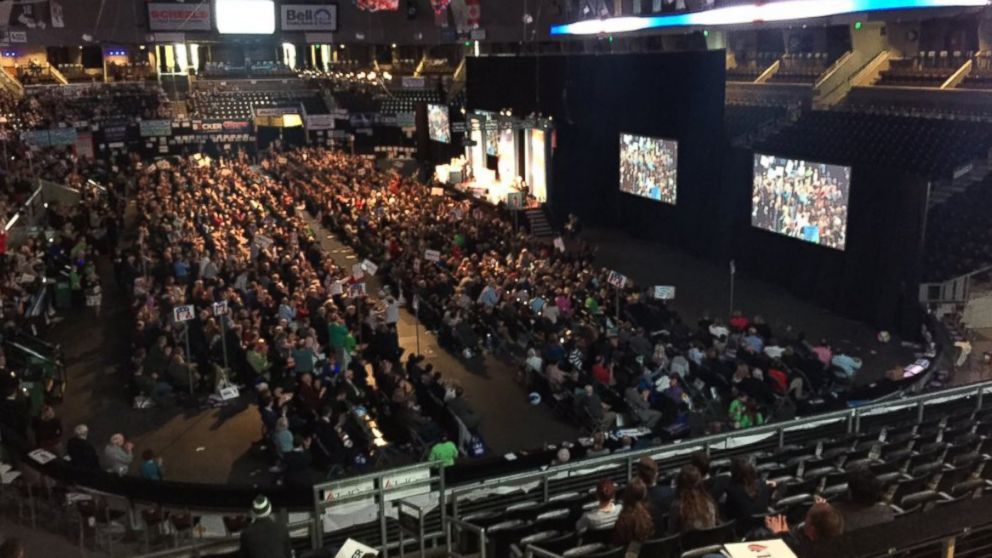Inside the Fight to Secure Delegates at the North Dakota GOP Convention
The presidential hopefuls' aides are courting the state's unbounded delegates.

FARGO, N.D. -- Nearly 2,000 people have descended upon Fargo's Scheels Arena for the North Dakota GOP Convention -- which kicked off its three-day run Friday -- and it's a political event that has drawn unexpected attention, as the state's delegates could prove to have a crucial impact on the Republican nomination.
Unlike every other state, except Colorado, GOP stronghold North Dakota does not hold a caucus or primary. Instead, delegates will be chosen this weekend by party insiders, not voters. Also, North Dakota has 28 unbound delegates, who will essentially be free agents at the GOP convention.
So, with the possibility of a contested convention looming overhead, the weekend in Fargo has been comprised of backroom deals, as aides and surrogates for the remaining Republican candidates attempt to woo potentially precious delegates in hopes of locking down their support at the national convention in July in Cleveland.
The ballrooms of the Ramada Plaza Hotel in Fargo were decorated Friday and Saturday nights with Trump, John Kasich and Ted Cruz paraphernalia, while the designated delegate-hunters for each campaign roamed the room, courting the delegates over hot food and a cash bar.
These wildcard delegates, who are free to vote for whomever they want at the convention, could either grant the GOP nomination to current front-runner Donald Trump or send the party into a contested convention.
All 28 delegates from the state will be unbound on the first ballot and are chosen at this weekend's state convention. An 11-member state party panel will score delegate applicants based on certain criteria, including history of work for the party, donations and candidacy, and submit a list to the convention of top choices. The full convention then votes on each individual delegate.
Since it’s mathematically impossible for Kasich to win the Republican nomination before the convention, his delegate team was focused on a contested convention.
“When you start with unbound delegates in North Dakota on the first ballot, you add to that number of unbound delegates on the second and potentially the third, I think that the party and the delegates are going to want to rally around a candidate that can beat Hillary Clinton in November,” Kasich senior adviser Merle Madrid told ABC News.
Former New Hampshire Senator Gordon Humphrey, who has endorsed Kasich, said of North Dakota's 28 delegates, “We’re prospecting for these 28 golden nuggets."
Humphrey described the “delegate relations” process as two-pronged: First, becoming friendly with the delegates in a social setting, and then the attempts to sway and persuade their voting in July.
“We get to know people on a friendly basis," Humphrey said. "It’s about relationships. We are going to invite them to dinner, lunch, breakfast, cocktail hour, whatever it is. Then we begin to get some indication of how they are leaning, who can be persuaded and what their intentions are on a second ballot.”




